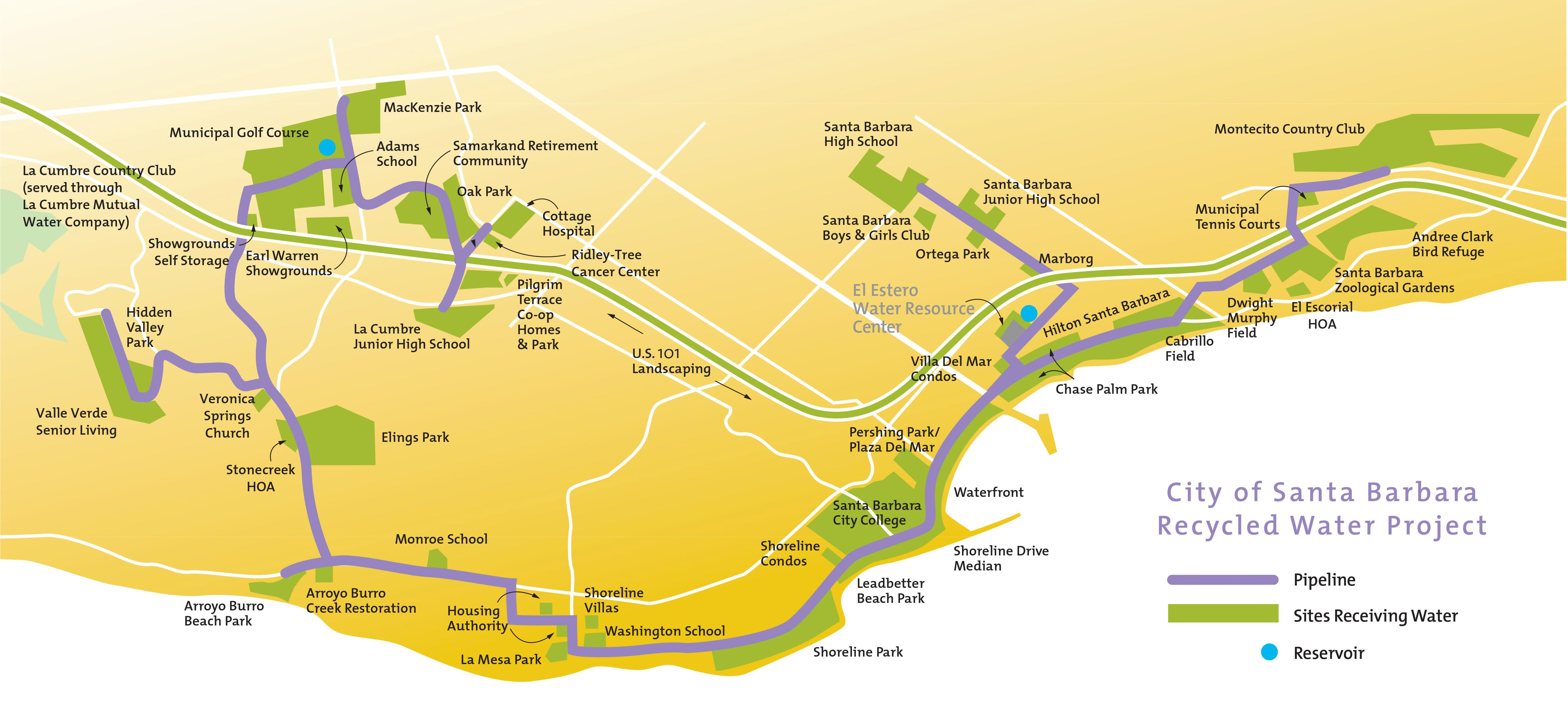Recycled Water

(click to enlarge)
What is Recycled Water?
Treated wastewater (secondary effluent) is sent through filters to produce recycled water. The filtration or tertiary treatment process removes very fine particulate matter from the water using a type of membrane filtration in which hydrostatic pressure forces liquid against a semipermeable membrane. The filtered water is disinfected with sodium hypochlorite (bleach) prior to distribution. Recycled water is used mainly for irrigation of landscaping at parks, schools, the zoo, golf courses, homeowners associations, and retirement homes. Additionally, recycled water is also used at some sites for toilet flushing, dust control, and sidewalk cleaning. The recycled water distribution system uses completely separate pipelines from the City's drinking water system and is denoted by purple pipes, purple color-coded irrigation systems, and signage.
